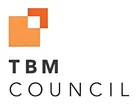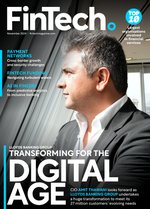The Evolution of TBM: A Framework for the AI Era

The Technology Business Management (TBM) Council is embarking on an ambitious transformation of its framework to help organisations navigate an increasingly complex technology landscape.
With the support of Matthew Guarini, Executive Director of TBM Council, the organisation is reshaping how businesses approach technology investment and value creation across multiple dimensions.
“Our value proposition is built on having one global standard that connects technology investments with business value, enabling meaningful conversations with business leaders,” says Matthew, outlining the council's core mission.
The framework encompasses various business outcomes including financial performance, operational efficiency and effectiveness, sustainability, risk management and customer experience.
Adapting to Modern Technology Leadership
This comprehensive approach has become increasingly critical as technology leadership evolves beyond traditional reporting structures.
“We're seeing a fundamental shift where Chief Information Security Officers often don't report to the CIO anymore. There's significant technology spend under AI officers and digital officers operating independently,” Matthew notes, highlighting the dispersed nature of modern technology management.
The council's framework aims to transcend organisational structures, focusing instead on technology practices and their business outcomes.
This approach enables organisations to map their technical capabilities and connect them through TBM methodologies, creating a continuous feedback loop with business stakeholders.
“This creates a feedback loop where we work with the business to assess if we're meeting their goals. If we are, we continue to innovate. If not, we examine the investment portfolio to find ways to deliver better outcomes,” Matthew explains.
Implementation and Support
The council has developed a nuanced approach to implementation, recognising that different organisations progress at different rates.
“We've moved away from labelling organisations as beginners or advanced," Matthew explains. “Instead, we focus on the journey – here's the playbook for ramping up your capabilities, and here's how to accelerate your progress once you've established the foundations.”
To support this journey, the council serves as an independent advisory body for organisations considering TBM adoption.
“We encourage organisations to start with us before approaching vendors,” Matthew advises. “We can help build the internal business case, provide insights into vendor selection and guide framework implementation and taxonomy choices.”
The council has assembled a diverse standards committee comprising professionals from various sectors, including state government and major financial institutions, to ensure their frameworks remain practical and applicable across different contexts.
It is actively working to reduce implementation time by developing industry-specific taxonomies that companies can adopt as starting points.
“For example, when an insurance company approaches us, we can provide them with pre-built taxonomies rather than having them start from scratch. They can implement these frameworks and refine them over time,” Matthew explains.
“We're seeing a fundamental shift where Chief Information Security Officers often don't report to the CIO anymore. There's significant technology spend under AI officers and digital officers operating independently.”
Future Growth and Development
With a network of 18,000 professionals across 4,000 companies, the council is focusing on three key areas for growth.
The first involves expanding research and standards, including the development of implementation playbooks. The council's research team is preparing to release a comprehensive ‘State of TBM’ report, along with complementary research focused on industry-specific use cases and best practices.
The second growth area centres on driving engagement and member experience. The council is significantly expanding its TBM Tuesday programme, its regular knowledge-sharing initiative. “We're doubling our monthly sessions and adding time slots that accommodate our Asia-Pacific members,” Matthew shares.
What’s more, the council is also expanding its communities of practice around key areas such as sustainability and artificial intelligence.
The third focus area involves developing new revenue streams and educational initiatives. While maintaining strong support from industry partners, the council is exploring sponsorships, partnerships and a comprehensive training and certification programme.
“We're developing certification programmes for both individuals and organisations,” Matthew reveals. “This will allow us to establish industry standards and provide training pathways to achieve them.”
The council's approach recognises that technology leaders vary in their business acumen. “Some CIOs excel at business dialogue while others focus primarily on technical delivery,” Matthew observes. “The key isn't just identifying potential cost savings—it's understanding how those savings can be reinvested to drive business outcomes.”
This focus on business outcomes rather than pure cost savings represents a maturation of the TBM discipline.
Matthew sees significant potential in the council's future: “The energy and quality of conversation at our events has been exceptional. There's genuine enthusiasm for what we're doing. By executing well on these initiatives, we can reinvigorate growth and transform TBM into something truly special.”
Explore the latest edition of FinTech Magazine and be part of the conversation at our global conference series, FinTech LIVE.
Discover all our upcoming events and secure your tickets today.
FinTech Magazine is a BizClik brand


